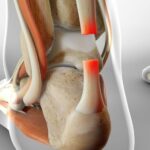Gum disease, also known as periodontal disease, is a common oral health issue that can lead to serious complications if left untreated. It begins with inflammation of the gums (gingivitis) and can progress to more severe conditions affecting the bone that supports your teeth. Preventing gum disease is crucial for maintaining overall oral health. This blog will provide practical tips on how to prevent gum disease and highlight the role of an oral hygienist in maintaining healthy gums.
Understanding Gum Disease
Gum disease is caused by the buildup of plaque, a sticky film of bacteria that forms on your teeth. If plaque is not removed through regular brushing and flossing, it can harden into tartar, which can only be removed by a professional. The presence of plaque and tartar can lead to inflammation of the gums, known as gingivitis. If gingivitis is not treated, it can progress to periodontitis, a more severe form of gum disease that can cause tooth loss.
Tips to Prevent Gum Disease
Maintaining good oral hygiene and regular dental visits are essential for preventing gum disease. Here are some effective strategies to keep your gums healthy:
Brush Your Teeth Twice a Day
Brushing your teeth at least twice a day is the foundation of good oral hygiene. Use a soft-bristled toothbrush and fluoride toothpaste to gently clean your teeth and gums. Make sure to brush for at least two minutes, reaching all surfaces of your teeth and the gumline. Brushing removes plaque and food particles that can contribute to gum disease.
Floss Daily
Flossing is crucial for removing plaque and food particles from between your teeth and along the gumline, where a toothbrush cannot reach. Floss at least once a day to prevent the buildup of plaque and reduce the risk of gum disease. If you find traditional flossing difficult, consider using floss picks or water flossers for easier access.
Use an Antibacterial Mouthwash
An antibacterial mouthwash can help reduce bacteria in your mouth and prevent gum disease. Rinse with mouthwash after brushing and flossing to ensure your mouth is as clean as possible. Look for a mouthwash that contains fluoride and is specifically designed to fight plaque and gingivitis.
Maintain a Healthy Diet
A balanced diet is essential for overall health, including your oral health. Eating a diet rich in vitamins and minerals can help keep your gums healthy. Foods high in vitamin C, such as citrus fruits, and calcium-rich foods, like dairy products, can support gum health. Avoid sugary and acidic foods and beverages, as they can contribute to plaque buildup and gum disease.
The Role of an Oral Hygienist
An oral hygienist plays a crucial role in preventing gum disease and maintaining your oral health. Regular visits to an oral hygienist can help you keep your gums healthy and prevent serious dental issues.
Professional Cleanings
An oral hygienist performs professional cleanings to remove plaque and tartar buildup that regular brushing and flossing might miss. These cleanings help prevent gum disease and keep your teeth and gums healthy. It is recommended to have a professional cleaning every six months, or more frequently if you are at higher risk for gum disease.
Education and Advice
An oral hygienist can provide valuable education and advice on maintaining good oral hygiene. They can teach you proper brushing and flossing techniques, recommend suitable oral care products, and provide tips on how to keep your gums healthy. Their guidance can help you prevent gum disease and maintain excellent oral health.
Early Detection and Treatment
Regular visits to an oral hygienist allow for early detection of gum disease. They can identify signs of gingivitis or periodontitis and provide appropriate treatments to prevent the condition from worsening. Early treatment of gum disease is crucial for preventing tooth loss and other serious complications.
Quit Smoking
Smoking is a significant risk factor for gum disease. It weakens your immune system, making it harder for your body to fight off infection, including gum infections. If you smoke, quitting can significantly reduce your risk of gum disease and improve your overall oral health. Seek support from healthcare professionals if you need help quitting smoking.
Stay Hydrated
Drinking plenty of water helps wash away food particles and bacteria from your mouth, reducing the risk of plaque buildup and gum disease. Water also helps keep your mouth hydrated and promotes saliva production, which is essential for maintaining a healthy oral environment.
Conclusion
Preventing gum disease requires a combination of good oral hygiene practices, a healthy diet, and regular visits to an oral hygienist. By brushing and flossing daily, using antibacterial mouthwash, maintaining a balanced diet, quitting smoking, and staying hydrated, you can keep your gums healthy and prevent gum disease. Regular check-ups and professional cleanings by an oral hygienist are essential for early detection and treatment of gum disease. Taking these steps can help you maintain excellent oral health and prevent the serious complications associated with gum disease.











